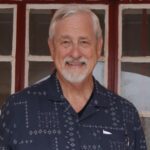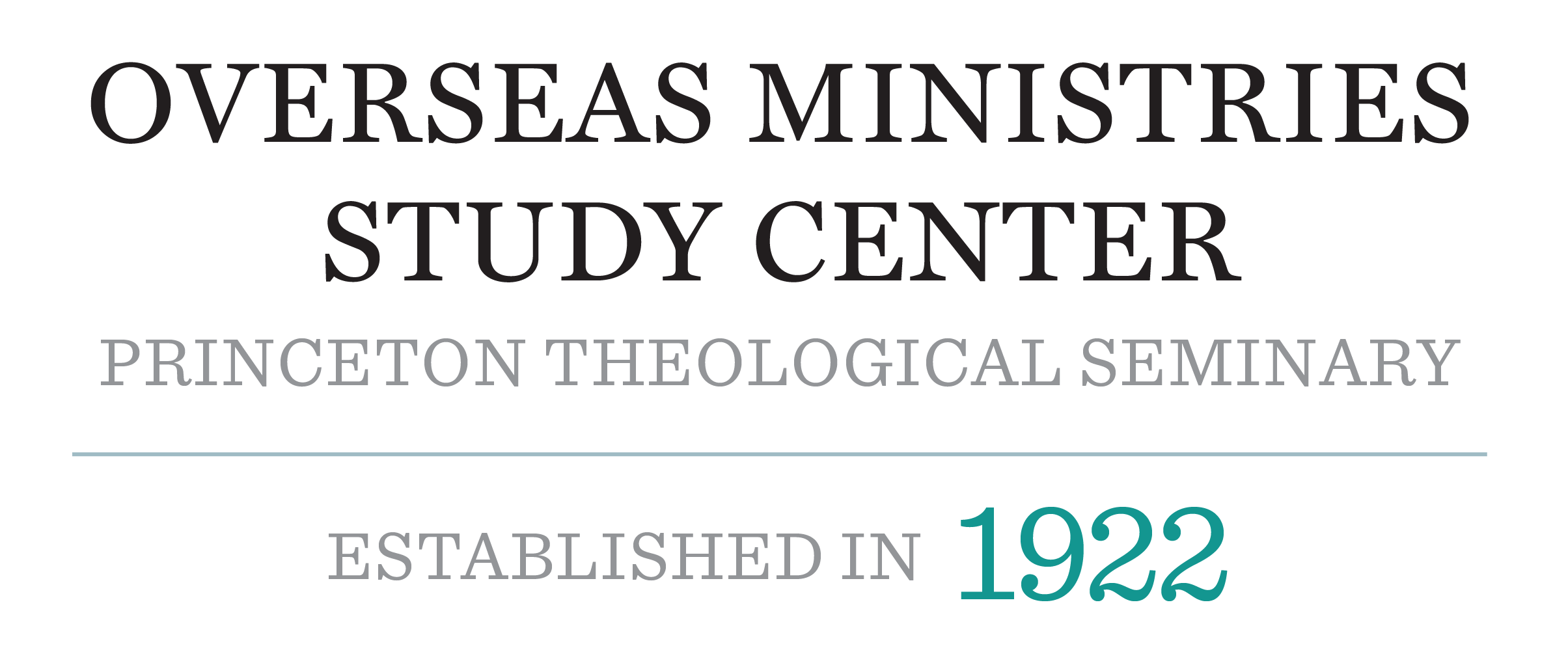By Joel Carpenter
 Joel was the provost of Calvin from 1996 to 2006 and then was the founding director of the Nagel Institute for the Study of World Christianity until retiring in 2019. He has enjoyed being a member of the history department all along. Joel has a longstanding interest in American religious and cultural history and now studies Christianity in Africa and Asia. His latest project is a study of the life and thought of Kwame Bediako, one of Africa’s leading Christian thinkers.
Joel was the provost of Calvin from 1996 to 2006 and then was the founding director of the Nagel Institute for the Study of World Christianity until retiring in 2019. He has enjoyed being a member of the history department all along. Joel has a longstanding interest in American religious and cultural history and now studies Christianity in Africa and Asia. His latest project is a study of the life and thought of Kwame Bediako, one of Africa’s leading Christian thinkers.
Editorial Introduction: This week, we will publish a memorial speech given by Dr. Joel Carpenter in a panel session, “Remembering Andrew Walls.” This was given at the Yale-Edinburgh Conference held at Yale Divinity School, New Haven, CT on June 26, 2024. – Stephen Di Trolio, Managing Editor of The Occasional.
Andrew Walls lived for a very long time, and before he departed from this life, he heard many more tributes and much more praise than he thought that he could bear. Christianity Today magazine named his first book, The Missionary Movement in Christian History (Orbis, 1996), one of the 100 most influential Christian books of the twentieth century. Every time Andrew was introduced to speak, it seemed, his hosts lavished praise on him for his extraordinarily powerful scholarship and teaching.
I never asked Andrew what he thought of the praise he received, but it was clear from his downcast gaze as he was being introduced that he found it all profoundly embarrassing. His authority as a teacher was hard-won and authentic, but Andrew’s best sense of who he was and the field he studied had no place for the high courts of authority. It violated his sense of where he was situated, and how God accomplished redemptive work in the world. Andrew much preferred to think of himself as a little guy, working out on the margins, and doing the work of a subversive.
Andrew loved to make light of his work and the world’s recognition of it. The third book of his trilogy on world Christianity, Crossing Cultural Frontiers, was, he said, “a ragbag” of his various writings. Indeed, none of his three books started out as a book. All three works, I am sure you have noticed, are collected essays, most of them prior publications from semi-obscure journals, whose progression as chapters and variations on central themes came from the hand of artful editors. That suited Andrew just fine. He wanted nothing of posturing as a famous author of books. His passion was to share what he was discovering with students and colleagues, mostly at small gatherings out on the margins of academe.

This posture reflected Andrew’s sense of the field that he studied. Foreign missions, he said, have been just a sideline for the Western church, peripheral to its main priorities and structures. Most missionaries, both the pioneers and the later followers of mass movements, Andrew discovered, were religious radicals. They were products of the evangelical revival, itself a force from the social margins, by and large. God used these earthen vessels to catalyze the greatest ever expansion of Christianity. The rise of the modern missions movement thus came from out on the edges, not from the Christian institutional centers of power. What this movement accomplished, he said, was in fact a “fortunate subversion” of the church.
Evangelical Christianity began, Andrew said, as “a religion of protest against a Christian society that is not Christian enough.” The very thought that it might become a socially prominent, power-wielding religious dreadnaught seemed scandalous; it was a betrayal of the movement’s calling and character. As you might imagine, American evangelicalism made Andrew edgy.
Given the marginal origins of missions and world Christianity, Andrew reasoned that its study would never become a high-prestige field. He said it was mainly an endeavor to “wash up” after other scholars and to tease out the implications that mainstream scholarship had neglected. He saw no glamor in such work, but he believed that it could be influential. By addressing issues and data that other disciplines had passed by, Andrew hoped that the story of world Christianity might call the church to a new Ephesian moment, when it would recognize and embrace the cross-cultural essence of its character.
Andrew became a friend of mine and a steady source of encouragement. I enjoyed his company, but he always seemed to be a bit on edge whenever we met. My first encounter with him was back in the 1980s, when the institute where I worked at Wheaton College invited him to speak at a conference on the history of American evangelical missions. His talk laid out the peculiarly American cultural traits of the American missionary enterprise. It was both penetrating and in parts, wickedly funny. Andrew began his talk by quoting an article by a Japanese theologian from the 1920s who said that Americans knew how to construct great bridges, amazing businesses and strong governments, but they knew nothing about religion. Of all things, the Americans thought that the way to trace God’s work in the world was through statistics! So, Andrew’s speech was a deft shot across the bow of the American evangelical missions establishment. But I have revisited it regularly as a source of self-understanding in my own cross-cultural work.
Decades later, as I became a foundation officer, then a college provost, and then once again an institute director, I had some wealth and power within reach. Andrew was always kind and cordial in relating to me, but also awkwardly deferential. Evidently, I looked to him like “the suit,” the money guy, the power broker. So, with lowered gaze he would approach me, proverbial hat in hand, seeking a favor. Andrew’s vision for what needed to be done to build this field of inquiry motivated him to ask for funds, but these transactions were almost painful for both of us. Much as I tried to be disarmingly friendly, the tension remained, but because of it, Andrew helped me to see myself more as others saw me. By being true to himself and his calling, he challenged me to look at myself more honestly. I am grateful for that.
Some of Andrew’s heroes in the history he wrote were fellow Scots: Robert Morrison, who spent a quarter-century producing a Chinese New Testament and a 3-volume dictionary; and James Legge, who over three decades translated the Chinese classics and thereby discovered a theistic tradition at the heart of Chinese civilization. Studying such laborers led Andrew to emulate their lives of “sustained vision and sustained toil” as a mission scholar. He kept on teaching, through years of fragile health, into his nineties, in a quest to help the church regain what he called “the plural cultural Christian consciousness of the New Testament.” That, he believed, was a pearl of great price, and he kept sweeping and seeking it, out on the margins, where God did world-transforming work.




